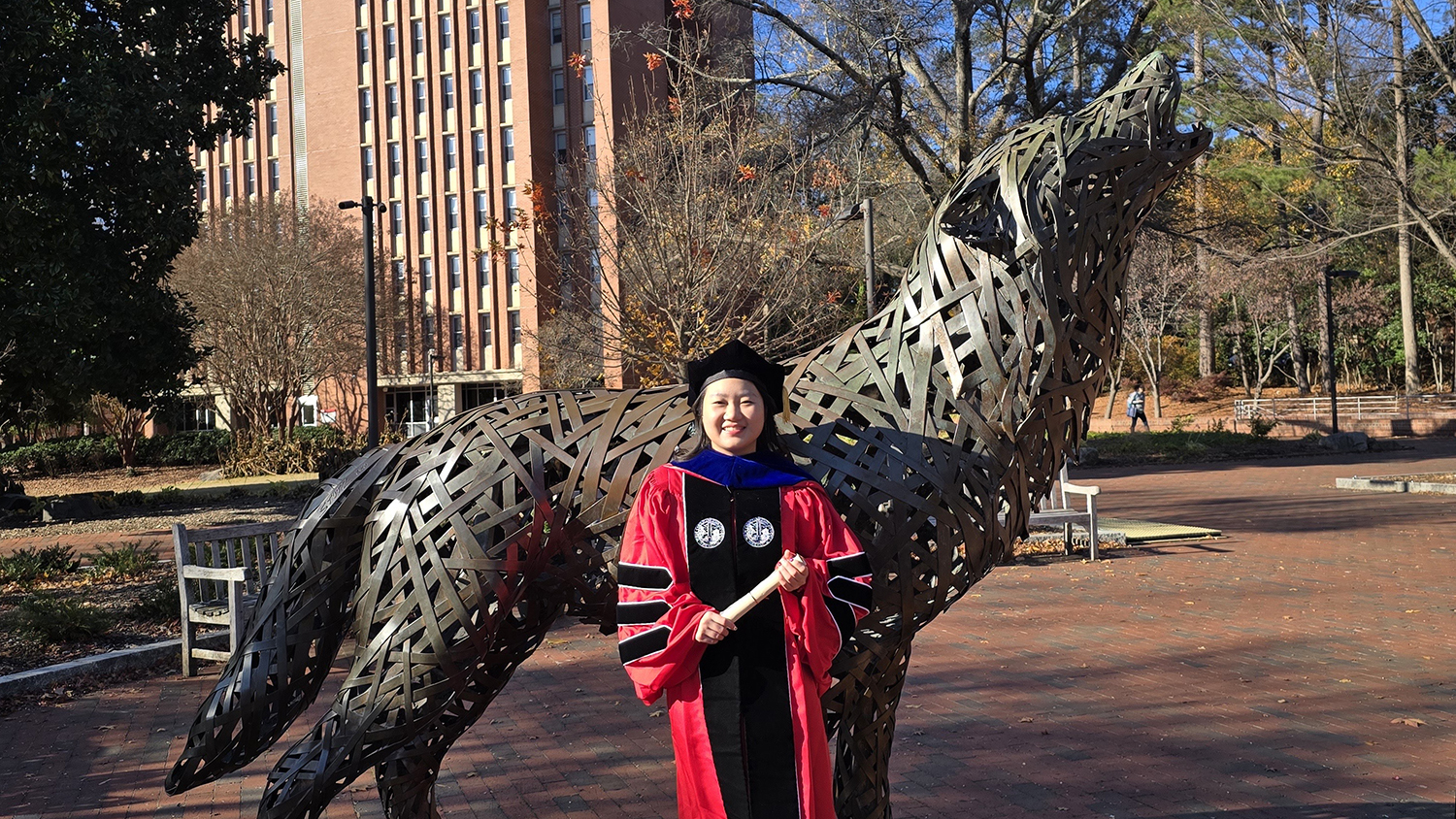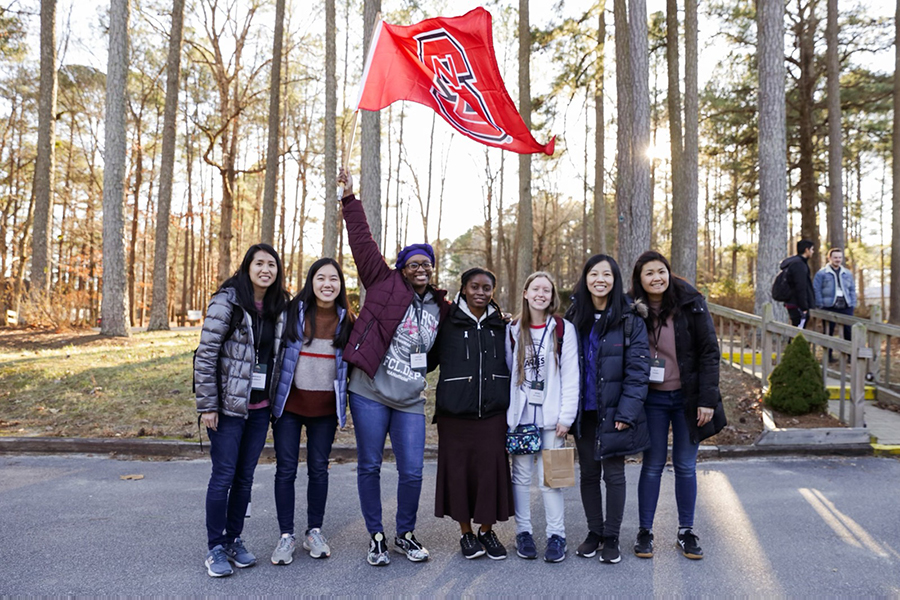From aviation ordnance Marine to mechanical engineer
Kyle Nielsen will be working on the same aircraft he did when he was a Marine after graduating with a BSE from NC State’s site-based Havelock program

Long before he started his coursework toward earning an engineering degree in Havelock, North Carolina, Kyle Nielsen had years of experience living around and working in mechanical fields.
Raised in San Pierre, Indiana, a town of 150 people, his father’s family operated a NAPA Auto Parts store, and his mother’s family ran a farm that connected to his family’s property. As an adult, he enlisted in the U.S. Marine Corps and served in aviation ordnance, responsible for maintaining and repairing aircraft.
“I had a lot of mechanically inclined people surrounding me,” he said. “So, I guess mechanics always interested me.”
In a few short weeks, Nielsen will be a full-time engineer, having earned his Bachelor of Science in engineering with a concentration in mechanical engineering systems (MES) from the NC State College of Engineering’s site-based program at Craven Community College in Havelock. The program partners closely with the nearby NAVAIR Fleet Readiness Center (FRC) East, a U.S. Navy aviation repair and maintenance facility at Cherry Point, and Nielsen will be working on the same aircraft he first worked on as a Marine.
“I could not say enough positive things about this program,” he said. “I could not imagine receiving the quality and type of education I got, if I had to try to figure out how to get to Raleigh to get it or to some other main hub.”
Gaining confidence
Despite his interest in mechanics, Nielsen did not see himself attending a four-year university when he graduated from high school in 2006. He was good at math and did well taking tests, but he often didn’t do his homework.
After graduation, he worked in a factory, and in 2008, he enlisted in the U.S. Marine Corps. “I just wanted something with ordnance or originally, anything that went boom,” he said. “I thought combat engineering would be cool, and I had a great recruiter.”

Joining the Marines helped set Nielsen on his path to the MES program. He was deployed once, to Kandahar, Afghanistan. As an aviation ordnance technician, he was assigned to the AV8 Harrier, a family of aircraft that are fast and maneuverable at low altitude and are designed to support ground troops. He earned qualifications and improved his knowledge of the aircraft, becoming a collateral duty inspector and quality assurance safety observer.
“I think that technical aspect of it gave me more confidence of not just being a person who wants to tinker and be mechanically inclined, but to think I really would like a deeper understanding of some of this, and I would like to know how it works,” he said.
A convenient choice
During his time in the service, Nielsen underwent several knee surgeries. While on medical leave, he met his now wife, who had also served in the Marines. She had bought a house in Havelock. They married, and when Nielsen left the service, they decided to stay in the area and start a family. He enrolled in Craven Community College, initially for accounting. But he was quickly bored.
At the encouragement of his neighbor, who also served in the Marine Corps and was in the MES program, Nielsen decided to give engineering a try. He faced some challenges and repeated two classes, but he made it through while balancing being a husband and raising two children.
“The first year at NC State was challenging for sure,” he said. “After that, I think where I hit my stride the best was committing — when I’m doing homework, I’m doing homework. When I’m at work, obviously I’m at work. When I’m with my kids, I am with my kids and my wife. You’ve got commitments, and sometimes it really feels like there is no balance. Homeownership, wife, kids, school work, all of it. But I’ve got a great family. I’ve got a good support system.”
Being so close to FRC East offered plenty of opportunities, and Nielsen has been an intern since his sophomore year. He now works on the structures side of the AV8 Harrier aircraft, doing critical item management and making technical edits to the aircraft manual that guides Marines who maintain the aircraft. He’s in a program called the Engineering Development Assistant Program (EDAP) and will be working in a similar role after graduation.
As a non-traditional student who started and finished his college education hours from Raleigh, Nielsen never fully got into the NC State athletic rivalries: “But when it comes to a college of engineering versus another college of engineering, I am strongly loyal,” he said.
- Categories:


